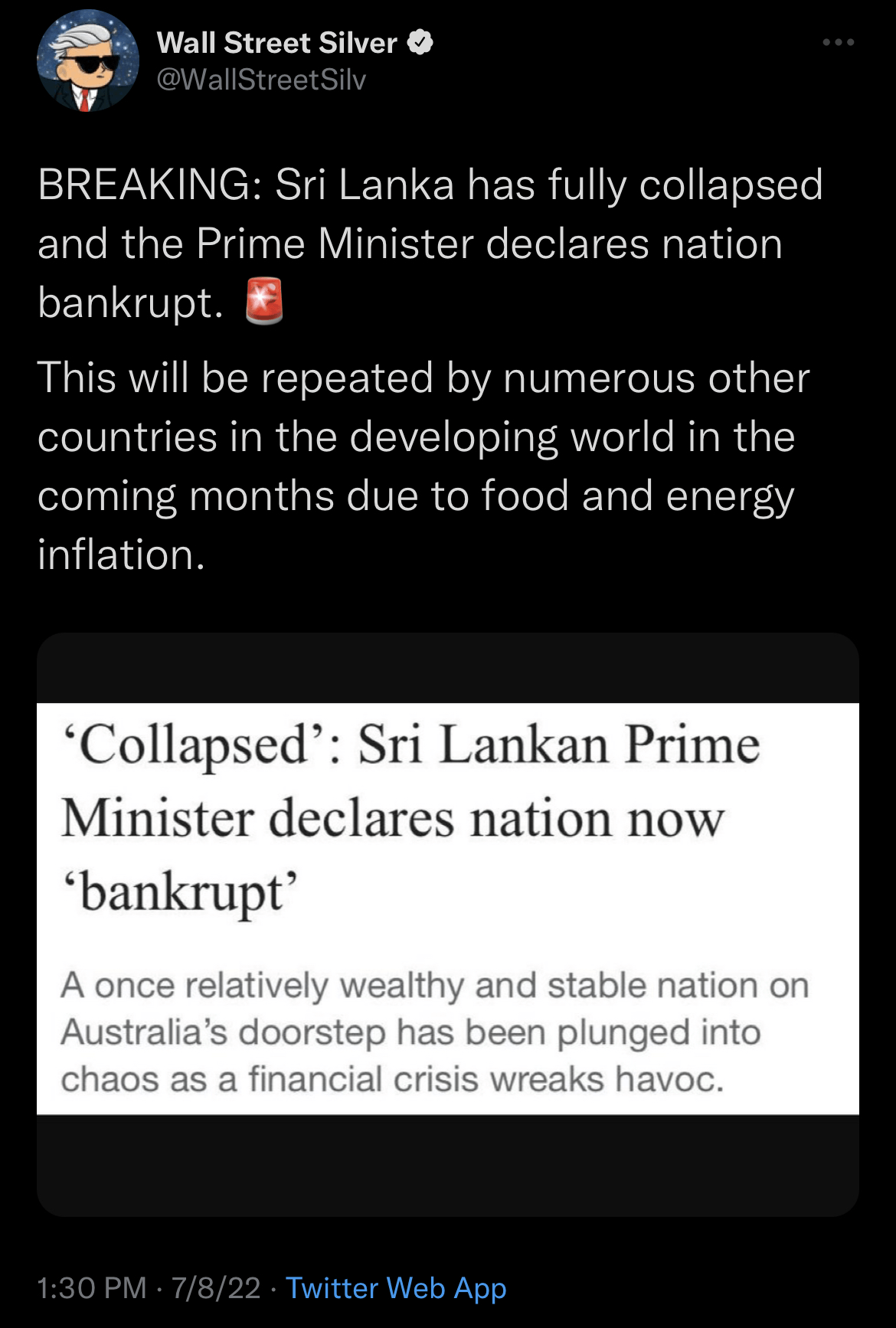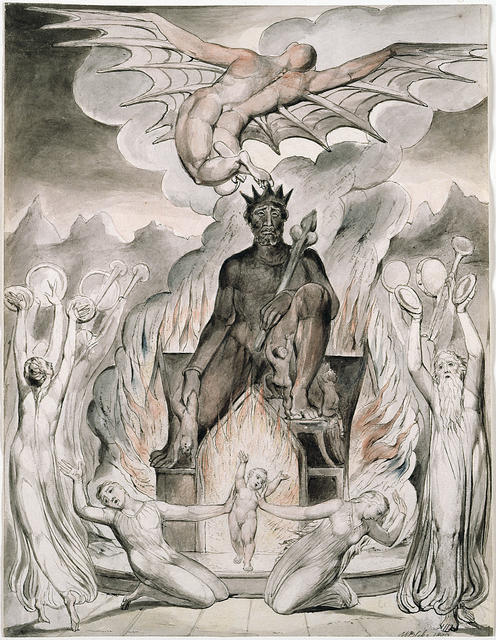
by Brian Shilhavy
Editor, Health Impact News
Officials in Germany warned citizens this week to prepare for gas shortages due to cuts in natural gas imported from Russia.
Trying to sell the war in Ukraine and sanctions against Russia, Germans are being told to prepare for hot water shortages, and rationing of gas to heat their homes where limits may be set to only 62 F (17 C).
Two days ago, Germany’s second-largest town of Hamburg told residents to prepare for hot-water rationing during certain times of the day due to “an acute gas shortage.”
Now, Germany’s largest landlord has warned tenants that when the heating season starts in autumn, they will only be able to turn their heat up to 17C (62.6F) between the hours of 11pm and 6am.
In a Thursday announcement, Vonovia said the move was intended to save energy and gas use during the current crisis. The company added that the change won’t affect daytime temperatures, and that access to hot water won’t be affected, meaning tenants can wash and shower as usual according to The Local.
Workers will modify the heating system during routine maintenance, and is expected to save around 8% on heating costs once the change comes into force.
Vonovia’s announcement comes after it emerged that a housing co-op in Saxony had taken drastic steps to minimise energy use in its buildings – including turning off the hot water for several hours a day.
The move means tenants of Dippoldiswalde Housing Cooperative can only take warm showers in the early mornings and late afternoons on the weekdays. The heating systems are also set to remain off until September. -The Local
Meanwhile, Germany’s Federal Network Agency has been pushing for a change in the legal minimum temperatures for tenants – with president Klaus Müller telling the Rheinische Post last month that tenants should face pressure to reduce their energy usage ahead of winter.
“In tenancy law, there are specifications according to which the landlord must set the heating system so that a minimum temperature of between 20C and 22C is achieved,” he said, adding “The state could temporarily lower the specifications for landlords. We are discussing this with politicians.”
Right now the legal minimum temperature is currently 16-17C in the night, and 20-22C (68-71.6F) during the day.
With Germany scrambling to replenish its energy supply for the winter, Economics Minister Robert Habeck (Greens) has set strict legal targets for gas storage facilities – with just 40% of the usual deliveries flowing through the Nord Stream 1 pipeline from Russia.
If the situation continues to deteriorate, caps on energy usage or other measures – such as reducing temperatures in apartment complexes, may be ordered at the federal level. (Source.)
This has caused mass panic buying of wood-burning stoves and firewood throughout Europe.
This energy shortage also threatens to shut down schools and educational facilities in Germany this winter.
Gas shortages could see German schools shut – official
Schools and other educational facilities in Germany should be classed as critical infrastructure to prevent their closure this winter due to possible gas shortages, the country’s education minister has argued.
Speaking to Germany’s Rheinische Post newspaper on Thursday, Bettina Stark-Watzinger said it should be a priority for Olaf Scholz’s government to make sure that schools and universities remain open even if the country ends up running low on gas this coming winter.
Now that Russia has considerably reduced supplies via the Nord Stream 1 gas pipeline, and with talk of a complete stoppage in the future, “close attention” has to be paid to schools and universities in Germany, “so that it does not possibly come to class cutbacks or even cancellation” in winter, Stark-Watzinger warned.
According to the official, educational institutions will, however, have to become thriftier in how they use energy, and re-evaluations are already underway in many schools and universities.
Gas shipments to Europe by Russia’s Gazprom via the Nord Stream 1 pipeline dropped to about 40% of capacity last month. Moscow claimed it was the direct result of Western sanctions, which prevented some key equipment from being returned to Russia.
To make matters worse, the pipeline is going to shut down completely for 10 days in mid-July for scheduled maintenance. (Source.)
Expect Disruptions to Your Previous Way of Life to Become the New “Norm”

As we reported yesterday with the farmer rebellion in Europe right now, shortages of just about everything now loom in the worldwide economy, due to government actions, such as the “Green Agenda” in the Netherlands that is trying to take farmland away from farmers, to the war in Ukraine, or to government mandates such as COVID-19 vaccines where a significant portion of the workforce has either quit, or for the ones who complied, have now died or become permanently disabled.
Very few people today are truly understanding just what is in store in the future, especially because so many have a false belief in the technology that today holds everything together. The technology is failing, and will continue to fail, as it takes a tremendous workforce to be able to service this technology and keep it running, not to mention that it also takes massive amounts of energy to produce the electricity that runs it.
Today in Canada, millions of people could not use their debit cards due to a major Internet outage.
Canada’s Rogers Communications Inc. reported widespread network outages on Friday morning, affecting financial institutions, government agencies, law enforcement, businesses, and wireless phone and home internet customers.
“We are aware of issues currently affecting our networks and our teams are fully engaged to resolve the issue as soon as possible,” Toronto-based Rogers tweeted.
We know how important it is for our customers to stay connected. We are aware of issues currently affecting our networks and our teams are fully engaged to resolve the issue as soon as possible. We will continue to keep you updated as we have more information to share.
— Rogers News (@AboutRogers) July 8, 2022
Customers were extremely angry with Rogers, responding to the tweet by saying:
“$400/mth for services I can’t even f**king use. This company is and will always be a f**king joke,” one person said.
Another said: “for my American followers: Canada has only two companies with telecom infrastructure in the entire country and one of them is currently suffering a complete nationwide outage.”
WSJ reports Rogers’ customers first reported outages around 0400 ET. Police in Ottawa and Toronto warned residents of connection issues with the 9-1-1 emergency hotline.
“The outage, which appears bigger than the one last year that largely affected consumers, comes as Rogers is attempting to take over rival Shaw Communications,” Reuters notes.
There were also significant issues with Interac, a Canadian e-transfer service, which tweeted around 1035ET about “nationwide Rogers outages,” impacting debit-card transactions online and at checkout counters.
“This is impacting INTERAC Debit and INTERAC eTransfer. INTERAC Debit is currently unavailable online and at checkout,” Interac tweeted.
The Canadian interbank network also said: “INTERAC e-Transfer services are unavailable at most financial institutions, impacting the ability to send and receive payments. We are waiting for updates from Rogers on their resolution.”
A spokeswoman for Royal Bank of Canada told WSJ the widespread internet outage is affecting some of its lender’s services across the country.
NetBlocks‘ real-time data confirmed a “major internet courage” across Canada where “national connectivity down to 75% of ordinary levels” this morning.
There’s still no word on what caused the massive outage. (Full article.)
Reports out of Sri Lanka show the country has completely broken down, where chaos now rules. What is to stop this from happening to other countries in the not-too-distant future?

In the U.S., it is being reported that the Biden Administration has been shipping the nation’s emergency oil reserves overseas, which will cause higher gas prices and potential shortages here in the U.S.
Millions Of Barrels From US Emergency Oil Reserve Sent Abroad, Including To China
With a growing number of people realizing that the Biden administration has drained more oil from the US strategic petroleum reserve, which is meant to be used during real emergencies not fake, made up ones such as Democrats facing a catastrophic failure at the midterm elections…
… more people are starting to ask the next big question: where is this furious liquidation of US black gold going?
Courtesy of Reuters we know: more than 5 million barrels of oil that were part of the historic U.S. SPR release were exported to Europe and Asia last month, including top US geopolitical nemesis in the global arena, China, even as U.S. gasoline and diesel prices hit record highs.
The export of crude and fuel is blunting the impact of the moves by U.S. President Joe Biden to lower record pump prices. In a widely mocked call, Biden on Saturday renewed a call for gasoline suppliers to cut their prices, drawing rightful criticism from Amazon founder Jeff Bezos, because going after mom and pop gas stores merely demonstrates just how clueless the handlers of the senile presidential puppet truly are. (Full article.)
As we have been warning for months now, all these actions are PLANNED, and not accidental, being the result of government actions who are doing the bidding of the Billionaires and Bankers they work for and who know full well that the current economy cannot sustain the massive debts and corruption that have propped up the system for far too long, and their goal is to crash everything, reducing the world’s population in the process, and then implement the Great Reset where they are the masters, and where those of us who survive are the slaves.
A critical mass of people waking up from the mind-numbing propaganda and resisting the tyrants, as maybe we are beginning to see in Europe with the farmers, is perhaps the only thing standing in their way.
Here is a good article written by Robert Genetski and republished on ZeroHedge News, that accurately describes our situation today. This news is being CENSORED in the corporate media, because that media is owned by the same Billionaires and Bankers who are behind all of this.
Today’s America: An Economy Of Shortages
ZeroHedge News
For the first time in over 40 years, the U.S. economy is dealing with widespread shortages. Parts are unavailable for manufacturers when they need them. Airlines abruptly cancel flights. Railroads and trucks are cutting shipments. Food shelves in some areas are depleted with some areas reporting a lack of meat supplies, milk, or other essential food items.
What’s going on?
Shortages and empty shelves are characteristic of economies where governments control and allocate resources. They are not characteristic of America’s free-market economy. The only other times America has faced shortages were during World Wars or during the 1970s.
Government-imposed price controls were directly responsible for shortages in the early 1970s. When businesses were unable to raise prices to sell their goods at a profit, they stopped producing, which created the shortages. Once the price controls were removed, the shortages ended.
Also in the 1970s, government price controls on oil and gas led to severe shortages on both. By the end of the decade, there were long lines of cars waiting at gas stations and purchases were rationed to ten gallons of gas. As soon as President Reagan removed price controls, the shortages of oil and gasoline ended and prices declined.
Free-market economies seldom experience shortages. This isn’t because everything is always plentiful. Bad weather can destroy crops. Disease can kill herds creating a shortfall in meat. Labor disputes or international shocks also disrupt markets. While shortfalls in some items are inevitable, a free-market economy adjusts and corrects for such events.
In free-market economies, shortages are rare because the market is remarkably efficient at raising prices of items that are in short supply. Sharply higher prices for scarce items, limit their use to the most efficient uses of the items and encourages the use of substitute items. Doing so enables the economy to adjust to potential shortages and shocks in the most efficient way possible.
In the current situation, the wide range of shortages highlights a serious problem. As with prior shortages, this one is due to government policies. While the federal government has not placed direct price controls on the economy, it has distorted markets in a number of indirect ways.
Energy production is one of the most obvious areas the Biden administration has redirected resources. Using theoretical environmental policies to limit fossil fuels, the government has redirected resources from the most efficient production of energy. The administration’s war on fossil fuels has been every bit as effective in limiting supplies as price controls have been.
In February of 2020, with oil prices at $45, U.S. oil production reached 13.1 million barrels a day. Today, with oil two and a half times that price, production should be at least 15 million barrels a day or higher. Instead, it’s 12 million. While the United States can’t control the world supply of oil, the failure to allow maximum domestic production reduces a resource critical to the efficient movement of all products and services.
In addition to restricting energy production, the administration’s climate policies have forced industries to redirect resources into bio-degradable fuels, leading to shortages in specific types of fuels. Laws providing rebates for solar power and windmills further reallocate resources to where the government wants them, rather than where markets would send them.
Almost every business currently complains about a severe shortage of workers. Businesses say they are unable to receive, produce, or ship products due to a lack of workers. Other than during wartime, there has never been a labor shortage in U.S. history.
Why Now?
Despite a surge in employment in recent months, May employment data show the economy has fewer workers today than before the lockdown.
Some claim generous government benefits associated with the lockdown created the problem. Enjoying what amounted to an extended vacation, many workers became used to not working. Returning to work can be difficult after months of leisure. It is even more difficult when the government offers incentives for not working.
Few want to talk about another possible reason for the labor shortage.
The growing number of reports of abnormal and even deadly reactions to the COVID-19 vaccines has made some workers reluctant to accept jobs that force them to take the jab. Most notably, thousands of airline pilots and 20 percent of health care workers have quit rather than risk the jab. These and other workers are concerned the vaccines have created the type of adverse reactions reported in the vaccine trials and also in the military where soldiers have been forced to take the vaccine.
The hesitancy of some to take the vaccine may be warranted. Insurance companies have reported a 40 percent increase in deaths among the working-age population in the latter half of 2021. Half of these were listed as COVID-19 and the other half non-COVID-19 deaths. In that period, the death toll among the working-age population amounted to a loss of at least 350,000 workers. This alone would account for a significant part of the labor shortage.
Since more than half the population had been fully vaccinated by the last half of 2021, the insurance company data point to problems with the vaccine in effectively dealing with COVID-19 or as a possible factor in the surge in deaths among the working-age population.
In addition to deaths, the Bureau of Labor Statistics reports a surge in disability among the population 16 years and over. A country doctor, with a career in dealing with disability cases believes the COVID-19 vaccines are responsible.
Misallocation of Resources
Widespread shortages are a characteristic of a problem with the economy. The root cause of shortages in a market economy always has been related to government interference with markets or people. The current period is no exception.
The forced lockdown of the economy, federal actions to limit energy production, generous government subsidies and payments, and government mandates regarding COVID-19 and vaccines all have played a role in the widespread shortages plaguing the economy.
The solution to shortages is for government to cease attempting to redirect resources away from market pressures. Government isn’t very good at running itself, and worse at running the economy. Federal officials should recognize the market system is the best way to allocate resources. Government misallocation of resources is the main reason America is suffering from widespread shortages in almost everything except inept leadership.
Read the full article at ZeroHedge News.
Related:
As the Technocrats False Promises are Exposed, Oil is King Again and Everyone Will Suffer
This article was written by Human Superior Intelligence (HSI)
See Also:
Understand the Times We are Currently Living Through
New FREE eBook! Restoring the Foundation of New Testament Faith in Jesus Christ – by Brian Shilhavy
Who are God’s “Chosen People”?
KABBALAH: The Anti-Christ Religion of Satan that Controls the World Today
Christian Teaching on Sex and Marriage vs. The Actual Biblical Teaching
Exposing the Christian Zionism Cult
The Bewitching of America with the Evil Eye and the Mark of the Beast
Jesus Christ’s Opposition to the Jewish State: Lessons for Today
Identifying the Luciferian Globalists Implementing the New World Order – Who are the “Jews”?
The Brain Myth: Your Intellect and Thoughts Originate in Your Heart, Not Your Brain
What is the Condition of Your Heart? The Superiority of the Human Heart over the Human Brain
The Seal and Mark of God is Far More Important than the “Mark of the Beast” – Are You Prepared for What’s Coming?
The Satanic Roots to Modern Medicine – The Image of the Beast?
Medicine: Idolatry in the Twenty First Century – 10-Year-Old Article More Relevant Today than the Day it was Written
Having problems receiving our emails? See:
How to Beat Internet Censorship and Create Your Own Newsfeed
We Are Now on Telegram. Video channels at Bitchute, and Odysee.
If our website is seized and shut down, find us on Telegram, as well as Bitchute and Odysee for further instructions about where to find us.
If you use the TOR Onion browser, here are the links and corresponding URLs to use in the TOR browser to find us on the Dark Web: Health Impact News, Vaccine Impact, Medical Kidnap, Created4Health, CoconutOil.com.























One Comment